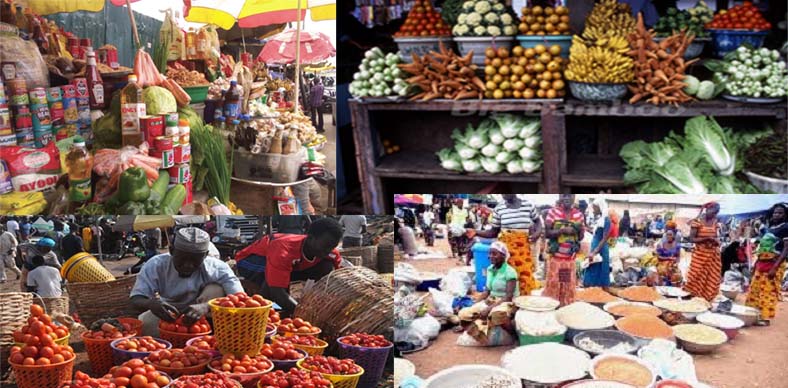Understanding the Food Crisis in Nigeria
From the farmers to the business owners in Lagos, the message is clear: Nigeria is facing a food crisis that demands immediate attention. As President Bola Tinubu returns from his annual vacation in the United Kingdom, many Nigerians are looking to him for leadership in tackling rising food prices and the inefficiencies of his administration.
The recent removal of petrol subsidies has further intensified the pressure on households struggling with basic food costs.
Join our WhatsApp ChannelThis situation is not just about rising prices; it reflects a larger systemic failure. The food crisis in Nigeria is exacerbated by a range of factors, including economic mismanagement, corruption, and lack of strategic planning. It is time for the government to take decisive action to alleviate the suffering of its citizens.
Voices of the People: Rising Costs and Struggles
Blessing Usman, a young Nigerian, expresses the concerns of many when she says, “Every week, prices go up. Petrol subsidy is a chorus we hear yearly, but my biggest headache is rice, beans, and every basic thing is getting more expensive. How will I feed my family?” Her worry captures the reality for countless families. As food prices soar, many are left wondering how they will provide for their loved ones.
Michael Adewale, a shoe-maker in Lagos, could make N30,000 a week. Now, he is struggling to earn N5,000. “People used to place orders for weddings and other events,” he explains. “But now those orders are not coming. It has been very difficult, especially with a son who needs to go to school and eat.” Adewale emphasises a crucial point: “Food is life. Without affordable food, we can’t survive. We need the government to act quickly.”
The Statistics Speak for Themselves
The statistics surrounding the food crisis are alarming. According to the World Bank, over 1 million Nigerians are currently affected by severe food insecurity. Additionally, more than 95.9 million people in Nigeria live below the poverty line of $1.90 per day. This situation highlights a growing disparity between the wealthy and the poor in Nigeria, driven by systemic issues that have persisted for years.
Inflation is another critical factor contributing to the food crisis, with rates hovering around 37% as of last September. The naira has slumped to record lows, further complicating matters for everyday Nigerians. With rising costs for food, cooking gas, medicine, fuel to over N1,000 per litre, and public transport, many households are feeling the squeeze. Poor Nigerians have either given up or begun to ration goods once considered essential, like meat, eggs, and milk.
READ ALSO: Food Crisis: A Challenge From Ex-Gov Obiano
Government’s Role and Responsibility
As citizens face this daunting food crisis, the government must respond with urgency. “We need strong leadership now more than ever,” states Martins Odion, head of research at the Society for Sustainable Development. “If they don’t listen, many of us will suffer.” The call for a streamlined government that prioritises the needs of the people over political games is more pressing than ever.
The perception of a bloated and inefficient cabinet is a common concern among Nigerians. Tunde Ayeni, a senior research analyst, suggests that “it’s time for a streamlined government that prioritises the people over politics.” By reallocating resources effectively and addressing the root causes of poverty and food insecurity, the government can begin to rebuild trust with its citizens.
The Path Forward: Collaborative Solutions
Addressing the food crisis requires collaboration among various stakeholders. The government must engage with local farmers, business owners, and civil society organisations to develop practical solutions. Investing in agriculture, improving supply chains, and providing financial support to struggling families are critical steps in combating the food crisis.
Additionally, education plays a significant role in addressing the root causes of poverty and food insecurity. Empowering young Nigerians, like Blessing Usman, with skills and opportunities can help break the cycle of poverty. “I hope to escape from poverty and give my unborn children a better life,” she says, highlighting the aspirations of many young people in Nigeria.
A Call to Action
The food crisis in Nigeria is a complex issue that requires urgent attention from the government. President Tinubu has an opportunity to lead by example and implement policies that prioritise the welfare of Nigerians. The voices of the people—like those of Blessing Usman and Michael Adewale—must be heard and acted upon.
As the nation grapples with rising food prices and economic hardship, the need for decisive action is clearer than ever. It is time for the government to rise to the occasion, address the food crisis head-on, and ensure that every Nigerian can afford to feed their family. The path to recovery begins with strong leadership and a commitment to serving the needs of the people. The future of Nigeria depends on it.
Emmanuel Ochayi is a journalist. He is a graduate of the University of Lagos, School of first choice and the nations pride. Emmanuel is keen on exploring writing angles in different areas, including Business, climate change, politics, Education, and others.

















Follow Us